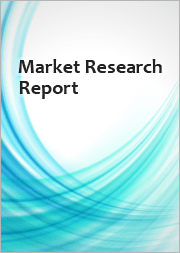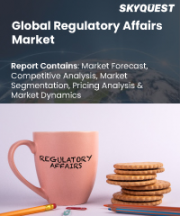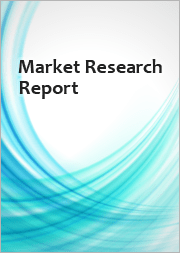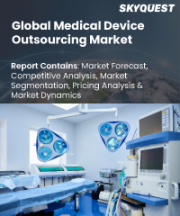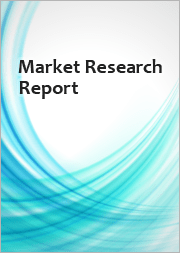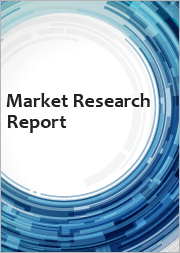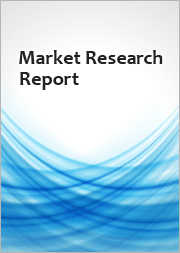
|
시장보고서
상품코드
1819857
규제업무 아웃소싱 시장 분석 : 서비스별, 기업 규모별, 카테고리별, 적응증별, 스테이지별, 최종 사용자별, 지역별(2025-2033년)Regulatory Affairs Outsourcing Market Report by Services, Company Size, Category, Indication, Stage (Preclinical, Clinical, PMA ), End User, and Region 2025-2033 |
||||||
세계의 규제업무 아웃소싱 시장 규모는 2024년 83억 달러에 달했습니다. 향후 IMARC Group은 2033년까지 시장이 160억 달러에 달하고, 2025년부터 2033년까지 7.22%의 성장률(CAGR)을 보일 것으로 예측했습니다. 진화하는 복잡한 규제, 산업의 세계화, 자원 최적화, 지속적인 기술 진보, 전문 지식의 필요성, 신속한 승인의 필요성 등이 시장을 추진하는 주요 요인의 일부입니다.
규제업무 아웃소싱은 기업이 법규 규정 준수 및 문서화 업무를 외부 전문 서비스 업체에 위탁하는 관행입니다. 이 약정에서는 특히 제약, 생명공학, 의료기기 등 규제가 까다로운 업계 기업들은 제3자 전문가나 기업을 고용하여 자사를 대신하여 약업무를 관리하게 합니다. 여기에는 제품 등록, 품질 보증, 정부 규정 준수, 규제 당국에 필요한 서류 제출 등의 업무가 포함됩니다. 이러한 업무를 아웃소싱함으로써 기업은 규제 프레임워크에 익숙한 전문가의 전문 지식을 활용하고, 프로세스를 합리화하고, 여러 경비를 줄이고, 진화하는 규제 기준을 확실하게 준수할 수 있으며, 궁극적으로는 시장 진입과 제품 승인을 촉진할 수 있습니다.
세계의 규제업무 아웃소싱 시장은 주로 의약품, 의료기기, 식음료(F&B)를 포함한 다양한 업계에서 정부와 규제기관이 부과하는 규제 요건이 복잡화 및 엄격화하고 있기 때문에 큰 성장을 이루고 있습니다. 또한 기업이 최신 규제 변경 및 규정 준수 기준에 익숙한 전문가 집단에 액세스할 수 있도록 하는 제품 채택의 확대가 적시에 승인과 시장 진입을 보장하고 시장 성장에 기여하고 있습니다. 게다가 시장의 세계화로 기업의 지리적 범위가 확대되고 다수의 국제규제에 준거가 필요하게 된 것도 시장의 성장을 뒷받침하고 있습니다. 또한, 지역 간의 다양한 규제 요구에 대응하는 확장 가능한 솔루션을 제공하는 아웃소싱 요구가 증가하고 있는 것도 시장 확대에 기여하고 있습니다. 이와는 별도로 비용효율과 업무유연성에 대한 새로운 동향은 기업이 외부의 규제서비스를 활용하는 원동력이 되어, 여러 경비를 삭감하면서 코어 컴피턴스에 집중할 수 있게 되어 시장 확대에 대한 긍정적인 전망을 창출하고 있습니다.
규제업무 아웃소싱 시장 동향 및 촉진요인:
규제 상황의 복잡화
규제업무 아웃소싱의 주요 촉진요인 중 하나는 다양한 분야에서 규제 환경이 점점 더 복잡해지고 진화하고 있습니다. 의약품, 생명공학, 의료기기, 식품 및 음료와 같은 업계는 제품의 안전성, 효능 및 품질 기준 준수를 보장하기 위해 엄격한 규제를 받고 있습니다. 이러한 규정을 준수하려면 전문 지식과 지속적인 모니터링이 필요합니다. 의약 업무를 아웃소싱함으로써 기업은 지역 및 국제 규제 틀의 뉘앙스를 이해하는 데 전문화된 전문가의 전문 지식을 활용할 수 있습니다. 이 외에도, 이러한 전문가들은 기업이 복잡한 규칙의 네트워크의 눈을 뚫고 제품이 규정 준수 기준을 충족하는지 확인하고 궁극적으로 시장 진입과 제품 승인을 촉진합니다.
시장 세계화 확대
규제업무 아웃소싱의 성장을 가속하는 또 다른 중요한 요소는 시장의 세계화입니다. 세계 사업을 전개하는 기업은 지역 및 국가에 따라 다른 다양한 규제 요건에 직면합니다. 이러한 규제를 준수하는 것은 특히 사내 규제 관련 자원이 제한된 기업에 있어서는 혼란스러워하는 작업입니다. 아웃소싱은 이러한 다양한 규제 요구에 효율적으로 대응할 수 있는 확장 가능한 솔루션을 제공합니다. 의약품 아웃소싱 기업은 종종 세계 존재를 가지고 있으며, 다른 시장의 특정 요구 사항에 맞게 제품과 프로세스를 적용하여 시장 진입과 국제 성장을 가능하게하고 기업을 지원할 수 있습니다.
비용 효율성과 업무 생산성에 대한 관심 증가
비용 효율성과 업무 중심의 필요성으로 인해 기업은 외부 약사 서비스를 활용하는 경향이 있습니다. 사내에 약사 팀을 유지하기 위해서는 급여, 교육, 인프라 등 많은 간접비가 소요됩니다. 의약 업무를 아웃소싱함으로써 기업은 이러한 고정 비용을 줄이고 자원 배분의 유연성을 얻을 수 있습니다. 이 접근법을 통해 기업은 자원을 R&D, 마케팅, 생산과 같은 핵심 역량으로 돌릴 수 있습니다. 약 사업을 전문 아웃소싱 파트너에게 맡기면 기업은 업무를 간소화하고 효율성을 높이고 시장 역학에 효과적으로 대응할 수 있습니다.
목차
제1장 서문
제2장 분석 범위·수법
- 분석 목적
- 이해관계자
- 데이터 소스
- 1차 정보
- 2차 정보
- 시장 추정
- 상향식 접근
- 하향식 접근
- 분석 방법
제3장 주요 요약
제4장 소개
제5장 세계의 규제업무 아웃소싱 시장
- 시장 개요
- 시장 실적
- COVID-19의 영향
- 시장 예측
제6장 시장 분석 : 서비스별
- 규제 컨설팅
- 법적 대리
- 규제 문서 집필 및 출판
- 제품등록 및 임상시험 신청
- 기타
제7장 시장 내역: 기업 규모별
- 소기업
- 중기업
- 대기업
제8장 시장 분석 : 카테고리별
- 제네릭 의약품
- 선발약
- 생물제제
- 바이오시밀러
- 의료기기
- 주요 유형
- 치료용
- 진단용
- 주요 유형
- 기타
제9장 시장 분석 : 적응증별
- 종양
- 신경질환
- 심장질환
- 면역 질환
- 기타
제10장 시장 분석 : 단계별
- 전임상
- 임상
- PMA(시판 후 승인)
제11장 시장 내역 : 최종 사용자별
- 의료기기 기업
- 제약회사
- 바이오테크놀러지 기업
제12장 시장 분석: 지역별
- 북미
- 미국
- 캐나다
- 아시아태평양
- 중국
- 일본
- 인도
- 한국
- 호주
- 인도네시아
- 기타
- 유럽
- 독일
- 프랑스
- 영국
- 이탈리아
- 스페인
- 러시아
- 기타
- 라틴아메리카
- 브라질
- 멕시코
- 기타
- 중동 및 아프리카
제13장 SWOT 분석
제14장 밸류체인 분석
제15장 Porter's Five Forces 분석
제16장 가격 분석
제17장 경쟁 구도
- 시장 구조
- 주요 기업
- 주요 기업 프로파일
- Charles River Laboratories International Inc.
- Covance Inc(Laboratory Corporation of America Holdings)
- Freyr
- ICON Plc
- Medpace Holdings Inc
- Parexel International Corporation
- Pharmaceutical Product Development LLC
- Promedica International-A California Corporation
- Wuxi AppTec Co. Ltd.
The global regulatory affairs outsourcing market size reached USD 8.3 Billion in 2024. Looking forward, IMARC Group expects the market to reach USD 16.0 Billion by 2033, exhibiting a growth rate (CAGR) of 7.22% during 2025-2033. The evolving and complex regulations, globalization of industries, resource optimization, ongoing technological advancements, specialized expertise requirements, and the need for rapid approvals are some of the major factors propelling the market.
Regulatory affairs outsourcing is the practice of companies delegating their regulatory compliance and documentation tasks to external specialized service providers. In this arrangement, businesses, particularly those in highly regulated industries such as pharmaceuticals, biotechnology, and medical devices, hire third-party experts or firms to manage regulatory affairs on their behalf. This encompasses activities like product registration, quality assurance, compliance with government regulations, and submission of required documentation to regulatory authorities. Outsourcing these tasks allows companies to tap into the expertise of professionals well-versed in regulatory frameworks, streamline processes, reduce overhead costs, and ensure adherence to evolving regulatory standards, ultimately facilitating market entry and product approval.
The global regulatory affairs outsourcing market is experiencing substantial growth primarily due to the increasingly complex and stringent regulatory requirements imposed by governments and regulatory bodies across various industries, including pharmaceuticals, medical devices, and food and beverages (F&B). Moreover, the expanding product adoption to enable companies to access a pool of professionals well-versed in the latest regulatory changes and compliance standards, thereby ensuring timely approvals and market access, is contributing to the market growth. Additionally, the globalization of markets has expanded the geographical reach of businesses, necessitating compliance with a multitude of international regulations, thereby bolstering the market growth. Furthermore, the growing need for outsourcing to provide a scalable solution to address diverse regulatory needs across regions is aiding in market expansion. Apart from this, the emerging trend toward cost-efficiency and operational flexibility drives companies to leverage external regulatory services, allowing them to focus on core competencies while mitigating overhead expenses, creating a positive outlook for market expansion.
Regulatory Affairs Outsourcing Market Trends/Drivers:
Increasing complexity in the regulatory landscape
One of the primary drivers of regulatory affairs outsourcing is the increasingly intricate and ever-evolving regulatory environment across various sectors. Industries such as pharmaceuticals, biotechnology, medical devices, and food and beverages (F&B) are subject to strict regulations to ensure product safety, efficacy, and compliance with quality standards. Keeping up with these regulations demands specialized knowledge and continuous monitoring. Outsourcing regulatory affairs allows companies to tap into the expertise of professionals who specialize in understanding the nuances of regional and international regulatory frameworks. Apart from this, these experts help businesses navigate the complex web of rules and ensure that their products meet compliance standards, ultimately facilitating market entry and product approval.
Expanding globalization of markets
Another pivotal factor fueling the growth of regulatory affairs outsourcing is the globalization of markets. As businesses expand their operations globally, they encounter a diverse array of regulatory requirements that vary by region and country. Complying with these regulations can be an intimidating task, especially for companies with limited in-house regulatory resources. In confluence with this, outsourcing provides a scalable solution to address these diverse regulatory needs efficiently. Regulatory affairs outsourcing firms often have a global presence and can assist businesses in adapting their products and processes to meet the specific requirements of different markets, thereby enabling market access and international growth.
Rising focus on cost-efficiency and operational productivity
Cost efficiency and the need for operational focus are driving companies to leverage external regulatory services. Maintaining an in-house regulatory affairs team involves substantial overhead costs, including salaries, training, and infrastructure. Outsourcing regulatory affairs allows organizations to reduce these fixed costs and gain flexibility in resource allocation. This approach enables companies to redirect resources towards core competencies such as research and development (R&D), marketing, and production. By entrusting regulatory activities to specialized outsourcing partners, businesses can streamline their operations, increase efficiency, and respond more effectively to market dynamics.
Regulatory Affairs Outsourcing Industry Segmentation:
Breakup by Services:
- Regulatory Consulting
- Legal Representation
- Regulatory Writing and Publishing
- Product Registration and Clinical Trial Applications
- Others
Regulatory writing and publishing dominate the market
The demand for regulatory writing and publishing outsourcing is driven by the growing complexity of regulatory documentation, which necessitates specialized expertise and resources. As regulatory requirements become more intricate and region-specific, businesses seek external partners with in-depth knowledge of document preparation and submission processes. Besides this, the need for rapid approvals and market access compels companies to outsource these critical tasks to ensure accurate, compliant, and timely submissions. Furthermore, the adoption of electronic submission systems and the digital transformation of regulatory processes create demand for outsourcing providers with the technological infrastructure and proficiency required for efficient electronic document preparation and publishing.
Breakup by Company Size:
- Small
- Medium
- Large
Medium holds the largest share of the market
Another key factor driving the global regulatory affairs outsourcing market is the rising demand for specialized expertise and resource optimization in medium-sized companies. Medium-sized firms often face resource constraints and may lack an in-house regulatory affairs team with comprehensive knowledge of evolving regulations. Outsourcing enables them to access a pool of experienced regulatory professionals without the overhead costs of maintaining a full-time team. Additionally, as these companies expand into new markets, they require adaptable regulatory support to navigate diverse and complex regulatory landscapes, making outsourcing an efficient and strategic choice to ensure compliance, market entry, and growth.
Breakup by Category:
- Generic Drugs
- Innovator Drugs
- Biologic Drugs
- Biosimilars
- Medical Devices
- Therapeutic
- Diagnostic
- Others
Medical devices dominate the market
The medical devices sector is subject to rigorous and evolving regulatory requirements globally, requiring specialized expertise to navigate. Outsourcing offers access to regulatory professionals who possess in-depth knowledge of medical device regulations, ensuring compliance and quicker approvals. Besides this, the constant innovation in medical device technology demands efficient and timely submissions to bring new products to market. Outsourcing streamlines regulatory processes, allowing companies to focus on R&D, thereby fueling the market's growth. Moreover, as the medical device market expands internationally, outsourced services provide support in adapting products to diverse regulatory environments, making outsourcing indispensable for market entry and sustained growth in this sector.
Breakup by Indication:
- Oncology
- Neurology
- Cardiology
- Immunology
- Others
Oncology holds the largest share of the market
The unique challenges and rapid advancements in this therapeutic area are impelling the demand for regulatory affairs outsourcing in the field of oncology. Oncological products often undergo accelerated development and require expedited regulatory pathways due to their potential life-saving nature. This demands specialized knowledge of oncology-specific regulations and fast-track approval processes, which outsourcing partners can provide. Furthermore, the increasing complexity of oncology clinical trials and the need for comprehensive data management and submissions necessitate outsourcing to experts who can navigate these intricate regulatory landscapes, ensuring timely approvals and market access for critical oncology treatments.
Breakup by Stage:
- Preclinical
- Clinical
- PMA (Post Market Authorization)
Clinical dominates the market
The surging complexity and resource-intensive nature of clinical trials are contributing to the increasing demand for regulatory affairs outsourcing at the clinical stage. Companies engaging in clinical research must adhere to stringent regulatory requirements to ensure the safety, security, and efficacy of investigational products. Outsourcing offers access to regulatory professionals with specialized knowledge of clinical trial regulations and documentation, helping companies navigate this intricate landscape efficiently. Concurrently, the need for rapid study initiation and adherence to evolving regulatory standards drives the demand for outsourced support in protocol development, submissions, and compliance, ensuring that clinical trials progress smoothly and meet regulatory milestones effectively.
Breakup by End User:
- Medical Device Companies
- Pharmaceutical Companies
- Biotechnology Companies
Pharmaceutical companies hold the largest share of the market
The pharmaceutical industry's evolving landscape represents the key factor aiding in market expansion. With an increasing emphasis on innovative drug development and stringent regulatory oversight, pharmaceutical firms require specialized expertise to navigate the complex regulatory pathways. Outsourcing provides access to regulatory professionals well-versed in pharmaceutical regulations, speeding up the approval process and ensuring compliance. Moreover, the demand for global market access and the need to adapt to regional regulatory variations make outsourcing an attractive option. It enables pharmaceutical companies to focus on core research and development activities while external partners handle regulatory affairs efficiently and effectively.
Breakup by Region:
- North America
- United States
- Canada
- Asia Pacific
- China
- Japan
- India
- South Korea
- Australia
- Indonesia
- Others
- Europe
- Germany
- France
- United Kingdom
- Italy
- Spain
- Russia
- Others
- Latin America
- Brazil
- Mexico
- Others
- Middle East and Africa
Asia-Pacific exhibits a clear dominance, accounting for the largest regulatory affairs outsourcing market share
The market research report has also provided a comprehensive analysis of all the major regional markets, which include North America (the United States and Canada); Asia Pacific (China, Japan, India, South Korea, Australia, Indonesia, and others); Europe (Germany, France, the United Kingdom, Italy, Spain, Russia, and others); Latin America (Brazil, Mexico, and others); and the Middle East and Africa. According to the report, Asia-Pacific accounted for the largest market share.
The increasing globalization of the pharmaceutical, healthcare, and life sciences sectors across the Asia Pacific has led to a surge in demand for regulatory services to navigate diverse regulatory landscapes across the region. Concurrent with this, the rising number of clinical trials and research activities in the region necessitates expertise in local regulatory requirements, making outsourcing an efficient solution for pharmaceutical and biotech companies looking to expand their presence. Furthermore, cost-efficiency plays a pivotal role as companies seek to optimize resources without compromising on compliance, making regulatory affairs outsourcing an attractive option in the Asia Pacific region.
Competitive Landscape:
The competitive landscape of the global regulatory affairs outsourcing market is characterized by a dynamic and diverse array of players vying for market share. Large multinational contract research organizations (CROs) hold prominent positions, offering comprehensive regulatory services across various industries and geographies. These industry giants leverage their extensive global networks, robust technology platforms, and deep regulatory expertise to cater to the diverse needs of clients. Additionally, niche and specialized regulatory affairs outsourcing firms focus on specific industries or regions, offering tailored solutions and in-depth regulatory knowledge. Emerging players, including startups and regional service providers, are also gaining traction by capitalizing on market niches and innovative service offerings. The competitive landscape is further shaped by strategic collaborations, mergers, and acquisitions as companies seek to expand their service portfolios and geographic reach.
The report has provided a comprehensive analysis of the competitive landscape in the market. Detailed profiles of all major companies have also been provided. Some of the key players in the market include:
- Charles River Laboratories International Inc.
- Covance Inc (Laboratory Corporation of America Holdings)
- Freyr
- ICON Plc
- Medpace Holdings Inc.
- Parexel International Corporation
- Pharmaceutical Product Development LLC
- Promedica International- A California Corporation
- Wuxi AppTec Co. Ltd.
Key Questions Answered in This Report:
- How has the global regulatory affairs outsourcing market performed so far and how will it perform in the coming years?
- What has been the impact of COVID-19 on the global regulatory affairs outsourcing market?
- What are the key regional markets?
- What is the breakup of the market based on the services?
- What is the breakup of the market based on the company size?
- What is the breakup of the market based on the category?
- What is the breakup of the market based on the indication?
- What is the breakup of the market based on the stage?
- What is the breakup of the market based on the end user?
- What are the various stages in the value chain of the industry?
- What are the key driving factors and challenges in the industry?
- What is the structure of the global regulatory affairs outsourcing market and who are the key players?
- What is the degree of competition in the industry?
Table of Contents
1 Preface
2 Scope and Methodology
- 2.1 Objectives of the Study
- 2.2 Stakeholders
- 2.3 Data Sources
- 2.3.1 Primary Sources
- 2.3.2 Secondary Sources
- 2.4 Market Estimation
- 2.4.1 Bottom-Up Approach
- 2.4.2 Top-Down Approach
- 2.5 Forecasting Methodology
3 Executive Summary
4 Introduction
- 4.1 Overview
- 4.2 Key Industry Trends
5 Global Regulatory Affairs Outsourcing Market
- 5.1 Market Overview
- 5.2 Market Performance
- 5.3 Impact of COVID-19
- 5.4 Market Forecast
6 Market Breakup by Services
- 6.1 Regulatory Consulting
- 6.1.1 Market Trends
- 6.1.2 Market Forecast
- 6.2 Legal Representation
- 6.2.1 Market Trends
- 6.2.2 Market Forecast
- 6.3 Regulatory Writing and Publishing
- 6.3.1 Market Trends
- 6.3.2 Market Forecast
- 6.4 Product Registration and Clinical Trial Applications
- 6.4.1 Market Trends
- 6.4.2 Market Forecast
- 6.5 Others
- 6.5.1 Market Trends
- 6.5.2 Market Forecast
7 Market Breakup by Company Size
- 7.1 Small
- 7.1.1 Market Trends
- 7.1.2 Market Forecast
- 7.2 Medium
- 7.2.1 Market Trends
- 7.2.2 Market Forecast
- 7.3 Large
- 7.3.1 Market Trends
- 7.3.2 Market Forecast
8 Market Breakup by Category
- 8.1 Generic Drugs
- 8.1.1 Market Trends
- 8.1.2 Market Forecast
- 8.2 Innovator Drugs
- 8.2.1 Market Trends
- 8.2.2 Market Forecast
- 8.3 Biologic Drugs
- 8.3.1 Market Trends
- 8.3.2 Market Forecast
- 8.4 Biosimilars
- 8.4.1 Market Trends
- 8.4.2 Market Forecast
- 8.5 Medical Devices
- 8.5.1 Market Trends
- 8.5.2 Major Types
- 8.5.2.1 Therapeutic
- 8.5.2.2 Diagnostic
- 8.5.3 Market Forecast
- 8.6 Others
- 8.6.1 Market Trends
- 8.6.2 Market Forecast
9 Market Breakup by Indication
- 9.1 Oncology
- 9.1.1 Market Trends
- 9.1.2 Market Forecast
- 9.2 Neurology
- 9.2.1 Market Trends
- 9.2.2 Market Forecast
- 9.3 Cardiology
- 9.3.1 Market Trends
- 9.3.2 Market Forecast
- 9.4 Immunology
- 9.4.1 Market Trends
- 9.4.2 Market Forecast
- 9.5 Others
- 9.5.1 Market Trends
- 9.5.2 Market Forecast
10 Market Breakup by Stage
- 10.1 Preclinical
- 10.1.1 Market Trends
- 10.1.2 Market Forecast
- 10.2 Clinical
- 10.2.1 Market Trends
- 10.2.2 Market Forecast
- 10.3 PMA (Post Market Authorization)
- 10.3.1 Market Trends
- 10.3.2 Market Forecast
11 Market Breakup by End User
- 11.1 Medical Device Companies
- 11.1.1 Market Trends
- 11.1.2 Market Forecast
- 11.2 Pharmaceutical Companies
- 11.2.1 Market Trends
- 11.2.2 Market Forecast
- 11.3 Biotechnology Companies
- 11.3.1 Market Trends
- 11.3.2 Market Forecast
12 Market Breakup by Region
- 12.1 North America
- 12.1.1 United States
- 12.1.1.1 Market Trends
- 12.1.1.2 Market Forecast
- 12.1.2 Canada
- 12.1.2.1 Market Trends
- 12.1.2.2 Market Forecast
- 12.1.1 United States
- 12.2 Asia-Pacific
- 12.2.1 China
- 12.2.1.1 Market Trends
- 12.2.1.2 Market Forecast
- 12.2.2 Japan
- 12.2.2.1 Market Trends
- 12.2.2.2 Market Forecast
- 12.2.3 India
- 12.2.3.1 Market Trends
- 12.2.3.2 Market Forecast
- 12.2.4 South Korea
- 12.2.4.1 Market Trends
- 12.2.4.2 Market Forecast
- 12.2.5 Australia
- 12.2.5.1 Market Trends
- 12.2.5.2 Market Forecast
- 12.2.6 Indonesia
- 12.2.6.1 Market Trends
- 12.2.6.2 Market Forecast
- 12.2.7 Others
- 12.2.7.1 Market Trends
- 12.2.7.2 Market Forecast
- 12.2.1 China
- 12.3 Europe
- 12.3.1 Germany
- 12.3.1.1 Market Trends
- 12.3.1.2 Market Forecast
- 12.3.2 France
- 12.3.2.1 Market Trends
- 12.3.2.2 Market Forecast
- 12.3.3 United Kingdom
- 12.3.3.1 Market Trends
- 12.3.3.2 Market Forecast
- 12.3.4 Italy
- 12.3.4.1 Market Trends
- 12.3.4.2 Market Forecast
- 12.3.5 Spain
- 12.3.5.1 Market Trends
- 12.3.5.2 Market Forecast
- 12.3.6 Russia
- 12.3.6.1 Market Trends
- 12.3.6.2 Market Forecast
- 12.3.7 Others
- 12.3.7.1 Market Trends
- 12.3.7.2 Market Forecast
- 12.3.1 Germany
- 12.4 Latin America
- 12.4.1 Brazil
- 12.4.1.1 Market Trends
- 12.4.1.2 Market Forecast
- 12.4.2 Mexico
- 12.4.2.1 Market Trends
- 12.4.2.2 Market Forecast
- 12.4.3 Others
- 12.4.3.1 Market Trends
- 12.4.3.2 Market Forecast
- 12.4.1 Brazil
- 12.5 Middle East and Africa
- 12.5.1 Market Trends
- 12.5.2 Market Breakup by Country
- 12.5.3 Market Forecast
13 SWOT Analysis
- 13.1 Overview
- 13.2 Strengths
- 13.3 Weaknesses
- 13.4 Opportunities
- 13.5 Threats
14 Value Chain Analysis
15 Porters Five Forces Analysis
- 15.1 Overview
- 15.2 Bargaining Power of Buyers
- 15.3 Bargaining Power of Suppliers
- 15.4 Degree of Competition
- 15.5 Threat of New Entrants
- 15.6 Threat of Substitutes
16 Price Analysis
17 Competitive Landscape
- 17.1 Market Structure
- 17.2 Key Players
- 17.3 Profiles of Key Players
- 17.3.1 Charles River Laboratories International Inc.
- 17.3.1.1 Company Overview
- 17.3.1.2 Product Portfolio
- 17.3.1.3 Financials
- 17.3.1.4 SWOT Analysis
- 17.3.2 Covance Inc (Laboratory Corporation of America Holdings)
- 17.3.2.1 Company Overview
- 17.3.2.2 Product Portfolio
- 17.3.2.3 SWOT Analysis
- 17.3.3 Freyr
- 17.3.3.1 Company Overview
- 17.3.3.2 Product Portfolio
- 17.3.4 ICON Plc
- 17.3.4.1 Company Overview
- 17.3.4.2 Product Portfolio
- 17.3.4.3 Financials
- 17.3.4.4 SWOT Analysis
- 17.3.5 Medpace Holdings Inc
- 17.3.5.1 Company Overview
- 17.3.5.2 Product Portfolio
- 17.3.5.3 Financials
- 17.3.5.4 SWOT Analysis
- 17.3.6 Parexel International Corporation
- 17.3.6.1 Company Overview
- 17.3.6.2 Product Portfolio
- 17.3.6.3 SWOT Analysis
- 17.3.7 Pharmaceutical Product Development LLC
- 17.3.7.1 Company Overview
- 17.3.7.2 Product Portfolio
- 17.3.7.3 Financials
- 17.3.7.4 SWOT Analysis
- 17.3.8 Promedica International- A California Corporation
- 17.3.8.1 Company Overview
- 17.3.8.2 Product Portfolio
- 17.3.9 Wuxi AppTec Co. Ltd.
- 17.3.9.1 Company Overview
- 17.3.9.2 Product Portfolio
- 17.3.1 Charles River Laboratories International Inc.






